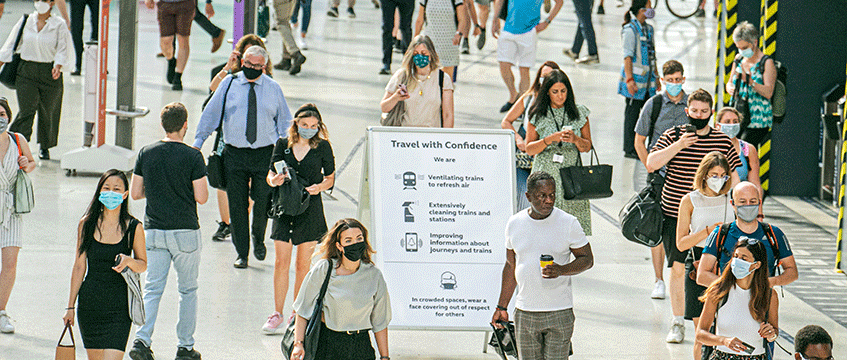Hybrid working ‘more concerning for women than men’
A future of hybrid working presents more worries for women than for men, according to research, with concerns including burnout and an inability to take time out.
A survey carried out by Aviva found that 46% of women were worried about experiencing burnout as employers move to a hybrid working structure, while only 35% of men felt the same way.
The survey also found that only 64% of women felt that hard work would enable them to take time for themselves during office hours, compared with 72% of men.
A future of hybrid working presents more worries for women than for men, according to research, with concerns including burnout and an inability to take time out.
A survey carried out by Aviva found that 46% of women were worried about experiencing burnout as employers move to a hybrid working structure, while only 35% of men felt the same way.
The survey also found that only 64% of women felt that hard work would enable them to take time for themselves during office hours, compared with 72% of men.
The findings come as England relaxes the vast majority of Covid-19 restrictions today, with most office employers targeting a phased return to the office which features a part remote, part in-person working model.
While companies have produced various hybrid working strategies, most employers agree that office staff will go into work two-to-three days a week and work from home for the rest of the time.
Aviva’s survey found that 52% of men felt the most productive hybrid work arrangement for them would involve three or more days in the office, while only 44% of women agreed with this.
More than one-third of employees felt that remote working brought about by the pandemic had improved their work-life balance, with just one-in-five saying it had been negatively affected.
However, 44% of those surveyed still felt they could never switch off from work, with many employers seen to encourage an “always-on” culture.
Wellbeing lead at Aviva Debbie Bullock said: “Employees will look for something in return to encourage them back to the office, and employers must ensure offices become a destination for collaborating, mentoring and socialising to rebuild relationships. It is also vitally important that people are treated as individuals, rather than employers trying to impose a one-size-fits-all approach.
“The pandemic may have been a collective experience, but the impact has been fragmented in so many ways, with women especially facing particularly acute stresses from the blurring of lines between home and work.
“An always-on, ever-present culture is guaranteed to end with people’s batteries depleted, and it is essential that employers recognise long-term productivity is only possible if you make space for wellbeing to flourish at work.”
To send feedback, e-mail alex.daniel@eg.co.uk or tweet @alexmdaniel or @EGPropertyNews
Picture © Amer Ghazzal/Shutterstock











